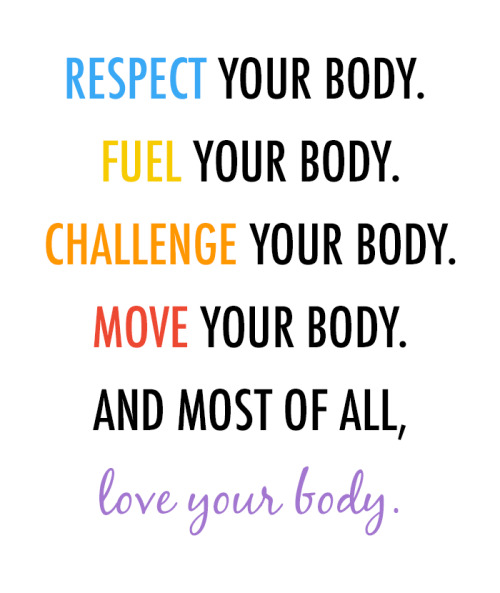Don't wanna be here? Send us removal request.
Text
The Challenges of High Achievement

It is my personal view that high achievers are bit of a unique breed in the office. I worked alongside many of them during my corporate career and many are clients nowadays. I consider that I was myself a high achiever. These folks are unique in that they demand a lot of themselves but also of others. So this article is designed for those among you who consider yourselves high achievers - so that you may consider easing off a bit and enjoying your work life a tad more possibly - and for managers who have this type of professional in their team - to offer some food for thought around how to adjust your style with this type of team member.
Thought #1: the "I need to be great" angle
What is fundamental about most high achievers is that their sense of fulfilment comes from excelling in a particular field. This makes for driven individuals who are very results-orientated. A boon for their employer but a burden for these people who never stop to appreciate but look only forward.
Being task-focused means that these professionals rarely have a sense of how they do what they do, as they focus instead of all that they've done and all that remains on their endless to-do list. Feel the pressure yet? This makes for people who are not connected to the value they bring. It's like they think: "Who am I beyond my accomplishments? What are my values, my gifts?" High achievers typically hold themselves to very high standards. This is oppressive for them and those colleagues who collaborate with them.
So to you the high achiever, let me encourage you to find time to reflect on how you contribute and start valuing how you deliver, not just what you deliver. Employers pay for your results yes but also for how you get there. Know that and you will be able to better negotiate how you are rewarded.
To the manager of high achievers, how about adopting a coaching posture and, through well-angled questions, get them to reflect on all that they're doing? Insight may lead them to release some of the pressure they heap on themselves.
Thought #2: the "I know better" syndrome
Not only are high-achievers results-orientated, but they are also rather self-centred. Not selfish, just self-absorbed as they capable of great concentration. They seek to impress with the quantity of what they do in addition to the quality of the finished product. This makes for quite a bit of tunnel vision and may seem less than a cordial attitude with team members. Their attitude seems to say: "keep off, I know it all!"
So to you the high achiever, let me encourage you to lift the nose up from your desk and notice what others are working on: could one of them help you finish your piece of work faster? In turn, could your skill help a colleague deliver to an ever higher standard? Try a bit of give and take!
To the manager of high achievers, combat their natural tendency to be self-involved by forcing them to be part of a collaborative project. Sure, they won't like it but, like little children have to learn to play without fighting and screaming, cooperating will teach your high achievers to get along!
Thought #3: the "what's mine is mine" approach
Unsurprisingly, the task-focused, results-orientated, self-preoccupied high achiever usually exhibits a fair bit of controlling behaviour. To make sure they control the timing and quality of their deliverables, the best way is to be in charge of something from A to Z. Collaborating with others represents a risk: high achievers are therefore poor at team work and at delegating.
So to you the high achiever, in addition to the give and take I advocated above, how about considering this question: "What would it take to trust someone else with a piece of work?"
To the manager of high achievers, be mindful of the controlling tendencies of this kind of professional and pay attention to the risk that they may steamroll others in the team in their bid to deliver. Not only is this attitude is less than professional but it will also negatively brand the high achiever as arrogant and self-serving.
Thought #4: the "I'll show you" motivation
Let's recap, high achievers are driven by the desire to get things done, which means they put enormous pressure on themselves and risk burning out through sheer Stakhanovism. They have no interest in working with or through others as this could compromise their hold over their deliverables as well as impact their great need for recognition. What we see emerging here is an identity which sees the self as solely an accomplisher. That's what I call the "I'll show" you motivation. By now, I should have you, the reader, rather dismayed by this high-achiever profile. Surely, you may think, who would want to be like that? And which manager would condone such behaviour?
Let me assure that many of us have some of the traits I have mentioned - to a greater or lesser extent. As I said upfront, I was a high achiever. I still am - though I dialled myself down. And many organisations will encourage high achiever-type of conduct: after all, they get things done.
Life for the high achiever is not very happy though it is punctuated by moments of exhilaration - but those are so brief.
So to you the high achiever, has that mirror which I am holding up for you to take a look at shown you a picture you are truly proud of? Might you consider opening yourself up to new ways of doing things in the office?
To the manager of high achievers, you may now be considering ways in which you will gradually "tame" these folks as the price they and the team is paying for their efforts may overtime turn out to be not worth it.
Thought #5: the "I'm not weak" delusion
A bit more of a reflective offering this time around, isn't it? No real tips and techniques but rather I chose to raise the flag on what is effectively a myth: that success at work only comes to those who are high achievers and who are therefore willing to sacrifice themselves and others in the process.
The last nail in the coffin: by eschewing collaboration and delegation, high achievers also avoid getting advice and consulting others. Alone, they may struggle - unseen and unheard. In particular, they may be faced with complexity and they would benefit from others' viewpoint. In addition, all this solitude is likely to mean that these performers lack in soft, interpersonal skills.
So to you the high achiever, let me beseech you to stop and stare. Is it all worth it, this rat race? Sure, you are doing very well I'm sure but how do you really feel about it? Might you be feeling trapped in a mode which is sucking the life out of you? How do your friends, family - your loved ones - feel about it? Do they seem to be missing (out on) you?
To the manager of high achievers, be compassionate towards those apparently really "hard-core" people who seem immune to the cares of the world save their own work deliverables.
There you have it: a few thoughts about those people we and they themselves label "high achievers". Is it really a badge of honour? Remember, every medal has two sides. If I have seemed harsh in my depiction, it is only to draw your attention to the risks which an ingrained, recurrent behaviour of high achievement represents for the individual and those around them at work.
Author of the "5 Gear Shifts to Accelerate your Career!" report, Alexandra helps ambitious and high-performing professionals tackle their frustration at work so that they resolve a complex problem, find a way out of a difficult situation or achieve a personally-meaningful objective.
As a Career Accelerator, Alexandra works with gifted individuals to obtain the promotion they deserve, orchestrate an in-house move to a different group, succeed fast in a new role as well as get clear about their next job and how to find it.
Alexandra's clients get to do more interesting work which they enjoy, avoid becoming stuck in one job when in fact they want variety, and learn to lead and work through others if they wish to. That way, they make a greater difference to their firm and, of course, grow their income!
3 notes
·
View notes
Photo
If you don't achieve this goal, what's the worst possible outcome you could expect to experience? Again, using the weight loss example, it might be that you'd continue to eat badly and put on more weight, become very unhealthy, get diabetes, feel depressed, worthless, lose all confidence in yourself, sex becomes non-existent, never bother setting goals again and give up totally on life. I realise that this might sound a bit extreme, but questions 4 and 5 are aimed at making you associate massive amounts of pain with not achieving your goal.

july 4. @brandonflowers — Stay gold Desired Effect. Well…….. for a little while anyway.
249 notes
·
View notes
Photo
Losing 3kg in weight would mean I'd drop a dress size and fit into some of the clothes I've not been able to wear in a while. I'd feel more confident about myself and my ability to control my eating. When I lose that first 3kg it will give me the incentive to carry on and get down to my ideal weight. If I do that, I can throw away all the clothes that will be too big for me and re-stock my wardrobe with fashionable, attractive clothes. I'll feel more confident about being naked and less inhibited in bed, so my sex life will improve. Long term, I know I'll be healthier and have more energy to play sport and be more active with my kids

Respect your body. Fuel your body. Challenge your body. Move your body. And most of all, Love your body.
630 notes
·
View notes
Text
A goal of "losing weight" or "get fitter" is not a SMART goal. You need to write down exactly what you intend to achieve i.e. I intend to lose 3kg in weight within the next 4 weeks. Do you believe that it is possible for you to achieve this goal? If not, do you need to change any of the parameters you've defined? For instance if you'd written I intend to lose 8kg weight within the next 4 weeks, that's not really realistic. If you don't believe you can achieve the goal, then I can pretty much guarantee that you won't.

439 notes
·
View notes
Photo
Don't just set goals on New Years Day. Why not make the first day of each month a day to review your goals? You could review how you got on with the goals you set for the previous month and decide if you need to fine tune your goals or the action needed to achieve them.

Life problems
859 notes
·
View notes
Photo
Goals can really get you juiced, give you an incentive to take action and make positive changes in your life. Goals can be short, medium and long term. Indeed we should have goals for the next week, month and year. In fact, in Japan most companies set goals for 100 years or more! The more precise your goals are the better. Our brains work best with clear, concise instructions. I'd suggest that you set goals for different areas of your life, health, finances, relationships, etc....



Some requested achievements! We’re at 51, now!
2K notes
·
View notes
Photo
Goal setting is really important. It's like giving yourself a destination and a road map to get you there. If you don't have goals, something you want to achieve, then you'll just end up drifting day to day and before you know it life has passed you by.

3K notes
·
View notes